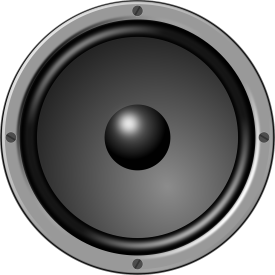Migraine: Is there a SONG stuck in your head?
Have you ever had a song stuck in your head?

Many people are familiar with that problem. But – have you ever had a song stuck in your head (sometimes called an “ear worm”) in a way that seems to be related to a migraine attack? Perhaps part of a melody that repeats in your head over and over and over?
Well, you’re not alone, as a new case study out of Canada reminded me today.
This particular person was a 33 year old woman who had suffered from episodic migraine since childhood. But since her late 20s, she began to experience what the researchers call “auditory hallucinations” in 10-20% of her attacks. Here’s how her symptoms were described:
… mild nausea accompanied by severe photophobia, mild phonophobia and right sided neck stiffness for a duration of up to four hours, followed by a repetitive ten to twelve word repetitive loop of a familiar song for a duration of approximately 20 minutes, followed by right sided severe pulsating headache, right periorbital pain, vomiting and mild rhinorrhea on the right side…
A case of musical mental imagery as suspected migraine aura in patient without psychiatric disease
We’ve talked about auditory hallucinations before. In an online poll, 6% of respondants reported super-hearing or hallucinations. And “hearing voices” has also been known as a part of a migraine attack.
But this also raises another question – how “real” do sounds need to be before they are called a hallucination? After all, a “song in your head” can be just as annoying and unstoppable as that loud song that comes on in the restaurant when you’re trying to enjoy a romantic dinner.
So if we stretch this concept out a little wider – how many of you have had the unpleasant experience of a repeating song in your head – during, or before the headache phase of migraine? You can leave a comment, but I’m guessing that there are quite a few of you out there.
The authors of this publication for the Canadian Journal of Neurological Sciences believe that this may be a part of the migraine chain-reaction.
For example, part of the migraine attack is the cortical spreading depression (CSD). This is a “storm” that spreads across your brain. As it passes over certain areas, it may affect different areas of perception – such as vision (hence visual auras – seeing zig zags, patterns or flashing lights).
We won’t get into the details here, but the authors mention various areas of the brain that are connected to music imagery, music memory, and even the emotions related to music (note that this perception of a repeating song during migraine can be very unpleasant).
Understanding the timing of this symptom may be a way that we can understand the biology of migraine – how the communication happens in your brain.
We don’t often think about or talk about symptoms like this – we concentrate on nausea and headache. But the fact is that migraine symptoms are much more that just head pain. And if you’ve experienced something like this woman, I’m betting it wasn’t just annoying, but something much worse. And that’s something that doctors and people without migraine need to understand.
If you would like to read more, at the time of writing I read this paper ahead of publication here: A case of musical mental imagery as suspected migraine aura in patient without psychiatric disease

9 October 2024 @ 8:34 pm
Me!!!! Every time. I can actually tell when a migraine is coming on because a lines from a song starts repeating in my head. I thought I was crazy.